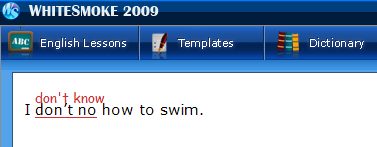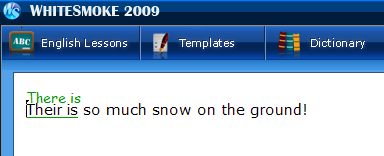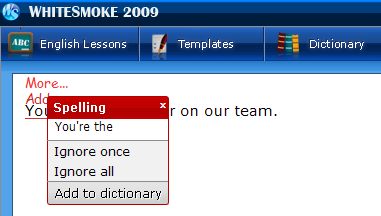Contextual Spelling - Common Errors
In English, as in several other languages, there are words that sound the same but mean different things. These similar-sounding but different-meaning words are homonyms. The word “homonym” comes from the Greek for “same name”. Some homonyms are especially confusing and hard to tell apart - in other words, which spelling corresponds with which meaning.
Homonyms are really tricky, even for native English speakers. A correctly spelled-word can be used in an incorrect-way, creating a special kind of spelling mistake. When the wrong spelling of a homonym is used, this is a contextual spelling mistake. Contextual spelling errors usually significantly change the meaning of a sentence, and typically sound pretty ridiculous.
So, it is very important to recognize common contextual spelling mistakes, and to learn the different spellings/meanings of each homonym.
Here are some of the most commonly confused English homonyms:
Their / They’re / There:
- Their - 3rd person plural possessive
Their house is on top of a hill. - They’re - Conjugation: “they” + “are”
They’re always late to class. - There - Location description
Her bag is over there.
Its / It’s
- Its - Possession of an object without a gender
Look at that car; its windows are broken. - It’s - Conjugation: “it” + “has / is”
It’s not fair!
It’s raining today.
It’s been three days since I saw you.
Accept / Except
- Accept - To approve; include; take in something
Please accept my apologies. - Except - Without; not including
Everyone came to the party except Luis.
Your / You’re
- Your - Possessive; belonging to “you”
It’s your turn. - You’re - Conjugation: “you” + “are”
I feel like you’re upset.
To / Too / Two
- To - Preposition; also precedes infinitives
This plane is flying to Hawaii.
It’s a good deed to donate money to the poor. - Too - Agreement; excess
Yeah, me too!
There’s too much pollution in the air these days. - Two - Amount
I sleep on two pillows instead of one.
Know / No
- Know - To have knowledge
Melissa, do you know Harry? - No - Negative
Since last month there has been no rain.
For a long list of other English homonyms read here
Fixing Contextual Spelling Mistakes with WhiteSmoke
One of WhiteSmoke’s unique features is the ability of its grammar checker to spot contextual spelling mistakes. Since technically these words are spelled correctly, it is necessary for a grammar checker to read and understand the entire sentence, in order to spot mistakes like these. Luckily, WhiteSmoke can do this!
Example # 1: I don’t no how to swim.
WhiteSmoke's Suggestion:
Example # 2: Their is so much snow on the ground!
WhiteSmoke's Suggestion:
Example # 3: Your the best player on our team.
WhiteSmoke's Suggestion:



